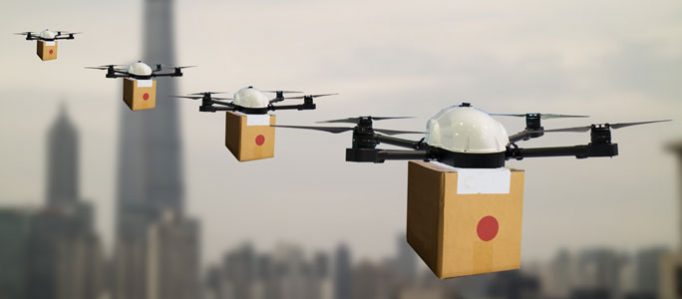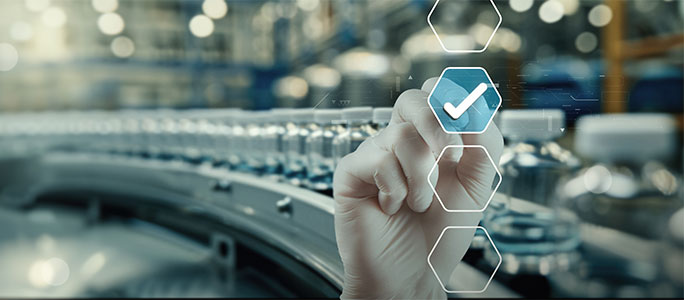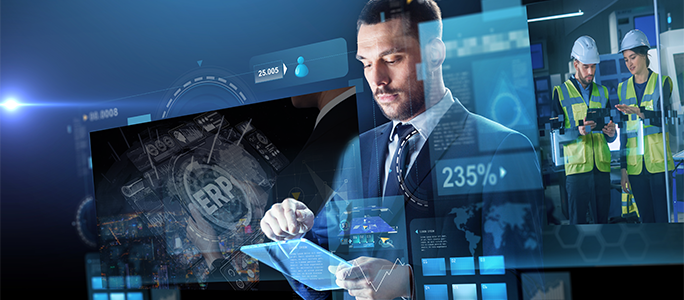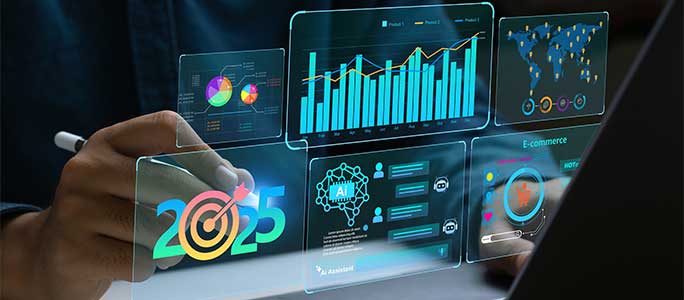
With the rise of technology, all the leading industries around the world have witnessed the rise of technology-backed innovation.
The dynamic and fast-paced retail industry too is no stranger to the ‘I’ word. In fact, from time to time, technology has rewritten the face of the retail sector.
From the first electronic cash register in the 1960s, the very first scan of a UPC barcode on the pack of a Wrigley Chewing gum in 1974, the first-ever online order in 1994, to the advent of e-receipts half-a-decade back, the world of retail has witnessed revolutionary changes- thanks to the technology-driven innovation.
Just like the past, the future of retail also looks set to be swamped by such innovations. In last few years, the growth of technology has expedited, as new innovations from drone delivery, robotics, to Artificial Intelligence (AI) chatbots and mobile shopping have taken shape.
And now, these innovations along with many others, are set to redefine the future of the retail industry.
The trends suggest brands and retailers are increasingly putting innovation at the core of their strategies.
This relates to everything from digitization, which is impacting almost every industry, to other future-looking technologies helping to shift their businesses forward.
Both retailers, as well as the consumers, have benefited from such innovations thus far.
In future, the businesses are likely to get more complex, and the consumers are likely to become more demanding.
Hence, the retailers are turning towards technology-backed innovations, and IT tools such as Retail Management Software, to simplify their businesses, and retain the consumers by enhancing their in-store as well as online experience.
Few innovations mentioned below are likely to rule the retail roost in future, helping the retailers manage their business well, and serve the customers in the best possible manner:
Robotics:
Robotics will be extensively used by retailers in future to enhance the customer experience. These robots will predominantly be systems that roam around the store aisles to ensure the products are correctly labelled and stocked.
This will help the store associates get rid of their ‘busy’, redundant jobs and create more time which they can use to attend the customers, interact with them, and help them in whichever way possible.
Blockchain:
Blockchain, a continuously growing list of records – called blocks – linked and secured using cryptography, has already proved to be a revolutionary innovation with its application in various industries.
In retail too Blockchain has been introduced, and we are set to see its broader application in future with various market researchers suggesting that Blockchain could attain general acceptance from consumers by 2025.
Its application in retail will mainly be in three areas- payment processing, as cryptocurrencies are set to become a medium of digital exchange in future, automated customer service, as Blockchain allows use of a set of instructions which can be automatically executed if the given conditions are met, and supply chain & inventory management, as the users can maintain lengthy records of events such as purchase, shipping logs from manufacturers to consumers, their state, quantity etc.
The data once recorded cannot be changed, thus eliminating the scope of data fudging.
Internet of Things (IoT):
A network of connected physical objects embedded with sensors, IoT allows the devices to communicate, analyze and share data via networks and cloud-based software platforms.
In retail industry, it includes ‘things’ such as RFID inventory tracking chips, traditional in-store infrared foot-traffic counters, cellular and Wi-Fi tracking systems, digital signage, or even a customer’s mobile device.
Its key application area in retail is supply chain and inventory management, as well as customer and store management.
IoT can help the retailers with predictive equipment maintenance, smart transportation, i.e. track and route trucks through GPS-enabled devices, inventory management through RFID, enhancing the in-store customer experience through their mobile devices, and managing as well as tracking the store footfall through Wi-Fi foot-traffic monitoring devices.
Drones:
The possibility of drone deliveries in future has already created a lot of buzz. However, some big retailers are also toying with the idea of using drones to introduce automation in large warehouses.
Equipped with devices such as an anti-collision system, a 360-degree detector, and a Wi-Fi router among others, drones are likely to be used in future to keep track of products no matter how high they’re stored, as they can quickly fly by, scan, and move on to the next item.
Virtual Reality:
Virtual Reality (VR) is defined as an artificial environment that is created as a 3-D image with the use of software as well as hardware and presented to the user in such a way that the user accepts it as a real environment.
Predicted to be the next big thing in the world of commerce, VR is primarily experienced through two of the five senses: sight and sound. Its application aims to eliminate the limitation of space and time, and make the retail businesses more efficient, more effective and better connected to their customers.
Retailers are looking to enhance the in-store experience of their customers and make it more interactive, with the use of VR headsets.
It’s already being applied in certain sectors, where the retailers are creating virtual experiences such as ‘holidays’, ‘weddings’ or ‘test drives’ to promote services and products, as the people can get a real feel about the services with the use of technology.
Artificial Intelligence (AI):
AI applications are increasingly playing a major role in automation of the retail process, a trend which is likely to dominate in the future.
It is being integrated in the different categories of the retail industry such as sales and CRM applications, manufacturing, logistics, delivery, payments etc.
These applications include the use of sales assistant software, cognitive computing tools, manufacturing software, payment apps, etc., which will enhance the customer’s shopping experience.
Conclusion: The retail landscape is becoming increasingly competitive than ever, and the consumers are becoming more and more demanding.
Thus, the urgency to innovate in order to move ahead is very real. We are entering into such times where consumers can have anything, anytime, & anywhere with ease.
In such scenario, if the retailers do not indulge in transformative innovation, they will fade into oblivion and gradually become irrelevant. The ones, who change with the times and innovate, will stay afloat.
Such leaders understand the importance of right tools, such as Retail ERP system, that facilitate innovation, and invest in them.
One such tool is BatchMaster Retail Management Software, which supports innovation and a host of other activities related to the retail business.
Loaded with the capacity for flexibility, integration and ingesting data from sensor-based devices, it lets you move from smart devices to smart data for improved efficiency and decision-making.
Serving the needs of the entire retail value chain, BatchMaster’s Retail ERP Software is making the future of retail happen today.
Contact us to know more about it. You can also write to us at sales@batchmaster.co.in.



















